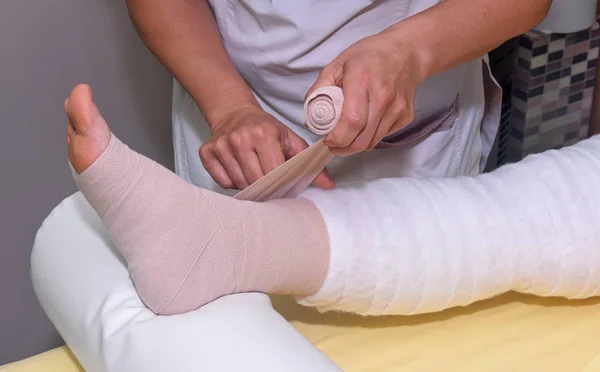Lymphedema is a chronic condition that affects the lymphatic system and is characterized by tissue swelling across your body. Other symptoms associated with lymphedema include heaviness, mobility problems, recurrent infections, orange peel skin, and swollen lymph nodes. There is also swelling of part or all of the arm or leg, including fingers or toes.
Although lymphedema is treatable, there is no cure for the condition. That simply means that if you suffer from lymphedema, you need to manage it appropriately to stay healthy. Managing lymphedema will help you control the symptoms, prevent severe complications, go about your daily activities, and live a healthy life.
To help you properly manage lymphedema, here are 5 tips to adhere to.
1. Eat A Healthy Diet
Eating a healthy diet is one of the most crucial ways to improve your health and overall well-being. This is also true for those who have lymphedema and want to avoid severe complications from the condition.
Consuming a diet that is rich in essential nutrients you can manage the health of your immune system and lymphatic system. There are a plethora of healthy foods for the lymphatic system.
Furthermore, a diet rich in protein is vital to keeping your body healthy and fully functional. When you do not get enough protein in your diet, fluid can seep from your bloodstream into your tissues, causing the lymphedema to worsen. Hence, you should opt for healthy protein from seeds, nuts, eggs, legumes, fish, poultry, and tofu in your daily diet.
2. Try Pneumatic Compression
Intermittent pneumatic compression (IPC) devices are devices used to help prevent blood clots in the deep veins of the legs. They are cuffed around the legs and fill with air, which squeezes your legs, increases blood flow through the veins of your legs, and aids in preventing blood clots.
Pneumatic compression is an accessible and convenient option for treating lymphedema. It particularly stands out because it has significant positive effects on lymphedema management.
They are available as wearable health devices or instruments for different parts of your body. When you wear them on the affected area, you will feel improvements in your swelling, tightness, and mobility issues.
It is very similar to using an at-home blood pressure monitor because it can be utilized in the comfort of your home.
3. Always Stay Hydrated Throughout the Day
Health experts recommend to drink approximately three to four liters of water a day to maintain optimal health. Staying hydrated can also help lymphedema patients who have issues with essential fluid management in the body.
Getting adequate water intake promotes your lymphatic system and helps to prevent it from developing complications. In turn, you can avoid other problems associated with lymphedema, such as hardened skin and lack of mobility.
If you find it difficult to keep track of your water intake, you can purchase a smart water bottle with app connectivity. These types of bottles can help you stay hydrated throughout the day with ease.
4. Exercise As Often As Possible
Engaging in regular physical exercise is an effective way to stay healthy. If you are suffering from lymphedema, it can also boost your lymphatic system and lessen the effects of swollen tissues.
To congruously manage lymphedema, swimming, in particular, is one of the best exercises that can help. The reason is that swimming is a full-body workout and helps you lose weight and increase stamina.
Resistance or strength training may be another excellent choice of exercise for reducing lymphedema. Resistance training works your muscles, which increases the flow of lymph fluid and helps move it away from the swollen area. You can hire a fitness trainer to help you start resistance training.
5. Visit A Lymphologist
Another important tip is to get holistic care and management for your lymphedema. Therefore, you should also consider visiting a lymphologist. Lymphologists are doctors who have been specially trained to diagnose and provide therapy for diseases of the lymphatic system.
Also, in addition to alternative therapies and lifestyle changes, visiting a lymphologist gives you informed guidance to live with your condition.
You can find qualified lymphologists near you through hospitals as well as physicians’ offices. You can also ask a general physician to recommend you to a lymph specialist.
This tip will ensure that you receive important and skilled advice regarding the management of your lymphedema. Thus, you can take the right steps, knowing that they come from a place of experience and knowledge.
Conclusion
Living with lymphedema can be quite challenging, not just physically, as people living with lymphedema can also have trouble coping emotionally and may develop depression or anxiety. However, you can easily overcome its many difficulties with the right support and practices. Ensure that you seek out clinically proven practices and popular alternative therapies so that you can live a happy life that isn’t marred by a damaged lymphatic system.








